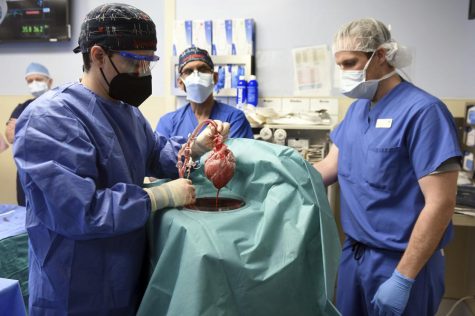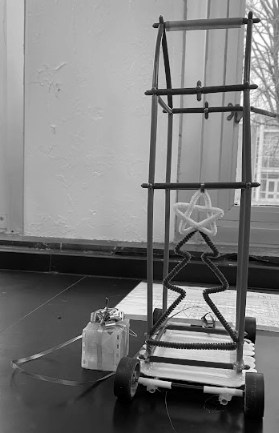Unprecedented transplant saving lives; Genetically-modified pig heart into patient
January 17, 2022
On Jan. 7, 58-year-old David Bennett received the first ever heart transplant from a genetically-modified pig. Bennett suffers from terminal heart disease and was able to receive this surgery at the University of Maryland in Baltimore.
According to BBC News, the surgery lasted seven hours and was experimental. Without the procedure, Bennett would have died and both himself and doctors were aware of the risks going into the surgery.
Even though the surgery was successful, there are still challenges, given that well-matched human donor organs are sometimes rejected by the human body. To lower the chances of Bennett’s body rejecting the pig heart, ten genetic modifications were made to the heart, according to The New York Times.
Four genes were inactivated in the pig heart and six human genes were inserted into the genome of the donor pig, making the genes more tolerable to the human immune system, says The New York Times.
Chemistry and anatomy teach, Mrs. Kimberly Harris said, “they have to modify the heart to not have galactose sugar, which is a different version of glucose. So, if doctors genetically modify the pig to not have those sugars then the human body will not reject the organ.”
Harris adds, “this transplant is related to Rocky Mountain Spotted Fever, which is a disease transferred by a tick. It is a meat allergy where someone suddenly becomes allergic to meat because the tick transfers the galactose molecule into human blood. The pigs that doctors are genetically modifying are also being used alpha-gal free, so those with Rocky Mountain Spotted Fever can eat meat from modified pigs.”
Along with pig hearts, “kidney’s were also transplanted, which is great because there’s tens of thousands of recipients who may be low on the donor list or have other health issues that prevent them from getting an organ,” said Harris. According to The New York Times, Surgeon Bartley Griffith says the surgery brings the world one step closer to the organ shortage crisis.
Senior Abigail Huneke said, “[I] think it was definitely experimental and it was a big risk that he [Bennett] took.” She adds, “it is very fascinating that they got the heart to work and given that he was the first person it worked for, its news breaking and incredible.”
The day before Bennett’s surgery he said, “It was either die or do this transplant. I want to live. I know it’s a shot in the dark, but it’s my last choice,” according to the University of Maryland School of Medicine. Three days after the surgery, Bennett was breathing on his own, while connected to a heart-lung machine.













